Post
A catch
Save a catch to start your fishing logbook. You will be able to to share it with the community if yo want!
A fishing trip
Post an ad to go fishing with other fishermen
Save a catch to start your fishing logbook. You will be able to to share it with the community if yo want!
Post an ad to go fishing with other fishermen
Share a thought, a question with the community
My favorite cities
×Keep your rods ready for Marathon-Shores in Monroe. The fishing forecast is currently 3.9. The most caught fishes here are the tarpon, the blacktip shark, the gafftopsail catfish and the cubera snapper. Come try the most famous fishing techniques like the bass trolling, how to catch smelt with square net?, fishing for sea bass while surfcasting or dive fishing.
Our fishing forecast of Marathon Shores indicates the best time to go fishing in this city.
The Tarpon
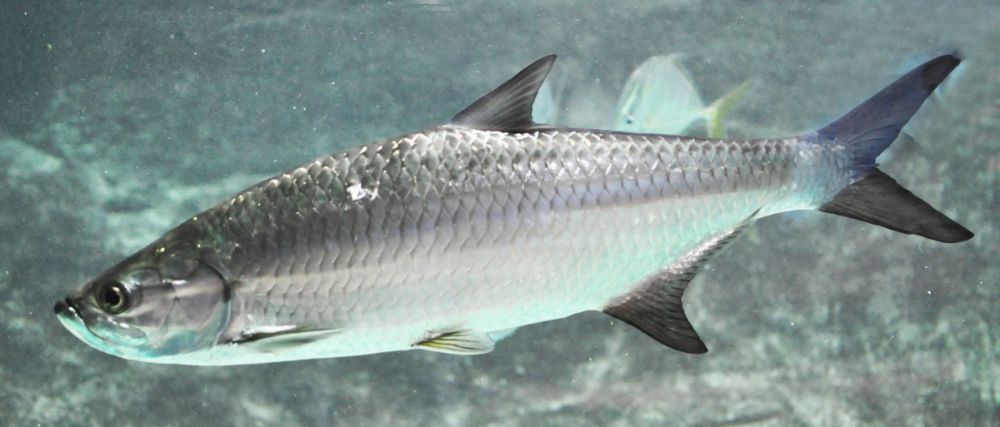
The Tarpon belongs to the Megalopidae family. The female tarpon can reach more than 2.5 m in length and weigh nearly 161 kg, the males being generally smaller. Males live longer than 30 years, while females can live longer than 50 years. They breed from May to July. It is generally fished during the spawning season. Externally, the almost vertical silvery sides made of large scales are the most distinctive feature of the tarpon. The tarpon has an upper mouth and the lower mandible extends well beyond the gape. The fins do not contain thorns, but are all made of soft rays. The dorsal fin is high forward and contains 13-15 rays of light, the last ray of which is very elongated into a thick filament. The caudal is deeply forked and the lobes appear to have the same length. The anterior part of the anal fin is deep and triangular. The fin has 22-25 rays, the last ray being elongated again as in the dorsal fin, but shorter and present only in adults. The tarpon has large pelvic fins and long pectoral fins containing 13 to 14 soft rays. The name "silver king" refers to the predominant bright silvery color on the sides and belly of the tarpon. Dorsally, the tarpon usually appears from dark blue to greenish black. However, the color may appear brownish or coppery for individuals living in inland waters. Dorsal and caudal fins have dark edges and often appear dark.
The Tarpon is a famous fish you can catch in Marathon Shores.The Blacktip Shark
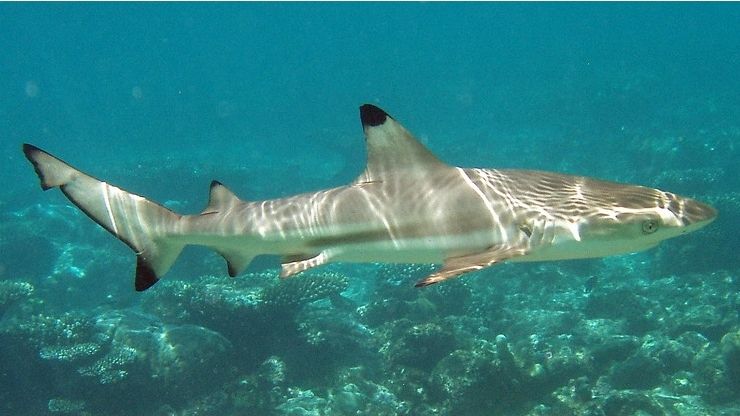
The Blacktip shark belongs to the Carcharhinidae family. If the maximum height is between 2.50 and 2.80 m, the average is more usually around 1.50 m, for a weight of 120 kg. The life expectancy of the blacktip shark is estimated at 12 years. Mating takes place from spring to early summer. It can be fished all year round. The blacktip shark has a relatively slender body with a long, conical snout. Its back and sides are ash grey; a light horizontal lateral stripe marks this area of the white belly quite slightly and a broad white line is often visible, belonging to the belly, coming from the caudal peduncle and stopping under the dorsal fin. The long nose is flattened dorso-ventrally and appears slightly rounded when viewed from below. The eyes are forward, relatively small. The mouth is wide. The nostrils are thin and you can't see the spiracles. The upper and lower teeth are quite similar, with a broad base and an almost straight point with finely crenellated edges. The pectoral fins are sickle-shaped. The first pointed dorsal fin with a pyramidal profile is inserted just behind the pectoral fins. The second dorsal fin is much smaller, facing the anal fin, of the same size. Just in front of the anal fin is a pair of small pelvic fins. Finally, the caudal fin is heterocercal with a fairly large upper lobe. All fins, except the anal, are bordered with a dark color on the trailing edge or apex, varying in intensity from one individual to another. The lower edge of the pectoral
The Blacktip Shark is a famous fish you can catch in Marathon Shores.The Gafftopsail Catfish
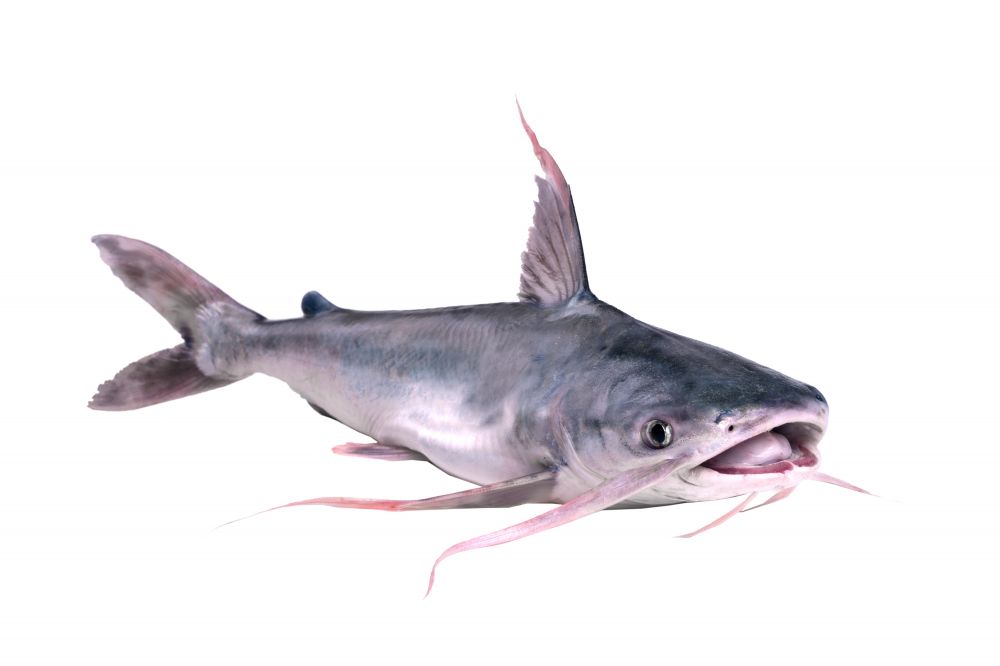
The Gafftopsail catfish belongs to the Ariidae Family. The typical length of an adult gafftopsail catfish is about 43 cm and it has an average weight of 910 g. It has a lifetime of 5 to 8 years. They breed from May to August. It can be fished all year round. The Gafftopsail catfish are blue-grey to dark brown with a light grey belly. Its appearance is typical of a catfish, except for its deeply forked tail and poisonous, serrated spines. It also has a small hump that looks like a wave. The anal fin is white or pale blue a few centimeters from the tail, with 22-28 rays and a high anterior lobe. The pelvic fin is between 15 and 30 cm in front of the caudal fin. The Gafftopsail catfish has maxillary barbells and a pair of barbells on its chin. It resembles the hardheaded catfish, but its backbone has a distinct fleshy extension (such as a ship's fore and aft topsail).
The Gafftopsail Catfish is a famous fish you can catch in Marathon Shores.The Cubera Snapper
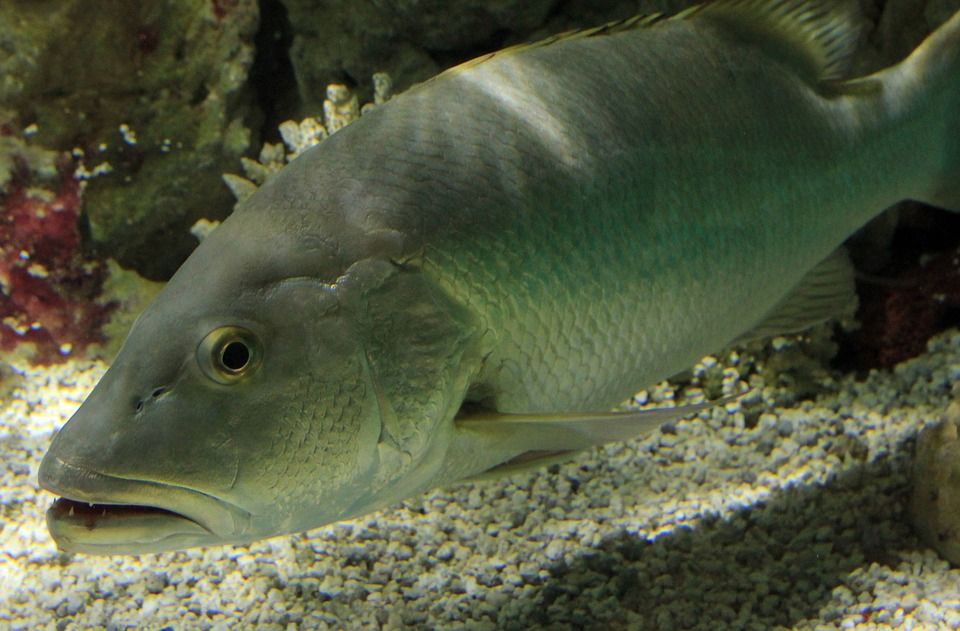
The Cubera snapper belongs to the Lutjanidae family. Its average weight is about 18 kg and reaching a length of 90 cm, the cubera snapper can reach 58 kg and 6 m in length. It can live up to 30 years old. It occurs from June to August. It can be fished all year round. This snapper is slightly different from some of the other members of the Lutjanidae family, because it has an elongated and slender body that is not very deep. It looks like the other lutjanidae by its long pectoral fin and continuous dorsal fin. The caudal fin is quite truncated. The mouth has thick lips and large teeth. These fish are generally grey or dark brown with pale to dark grey sides. There may also be a slight reddish tinge on the body. There is a bluish shade on the anal and ventral fins. The caudal fin is light grey in color while the pectoral fins are translucent or grey. Juveniles have a slightly striped pattern on each side that fades with adulthood.
The Cubera Snapper is a famous fish you can catch in Marathon Shores.The Bonnethead shark
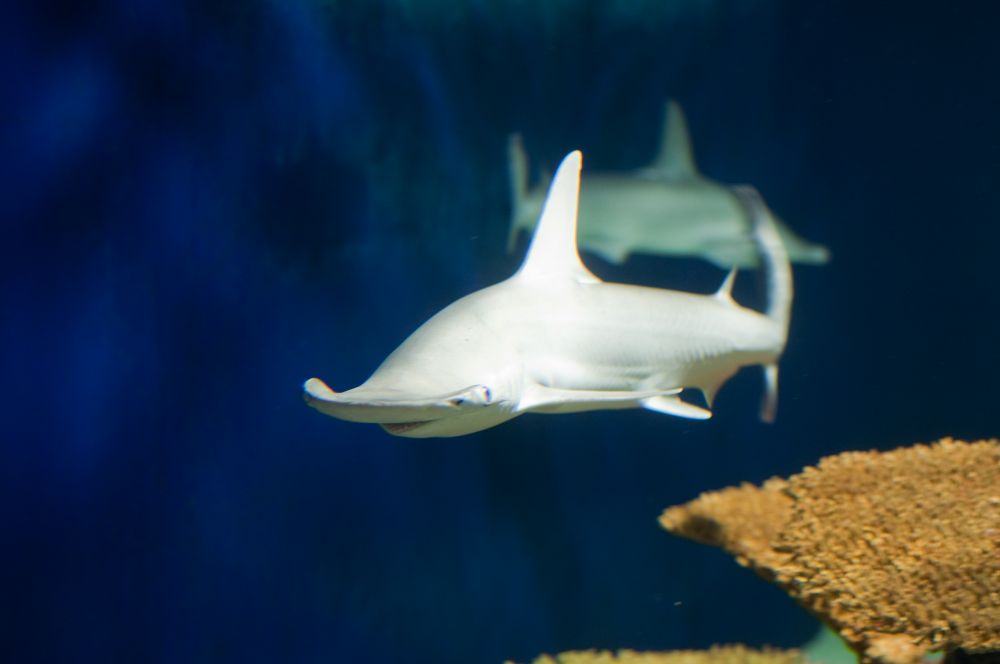
The Bonnethead shark belongs to the Sphyrnidae family. Bonnethead sharks are generally about 0.61 to 0.91 m long, with a maximum size of about 50 cm. Its maximum lifespan is about 12 years. It is believed that bonnethead mate in spring and fall, or even all year round. It can be fished all year round depending on the location. The bonnethead shark is a small species of shark with a head in the shape of a spade that characterizes this fish making it easier to identify. The head is flattened, the anterior margin of the head is also rounded between the eyes and the mouth is arched. The front teeth have straight and smooth cutting edges, while the next teeth have oblique cutting edges, the outer teeth of the lower jaw are modified in flat mills. The first dorsal fin slightly throws the posterior at the base of the pectoral fin. The dorsal drift with the rear lobe is well developed. Some specimens are dark brown in the lateral dorsal region, lighter in the ventral region and grey in others.
The Bonnethead shark is a famous fish you can catch in Marathon Shores.Our fishing forecast of Marathon Shores indicates the best time to go fishing in this city.
Our fishing forecast of Marathon Shores indicates the best time to go fishing in this city.
Our fishing forecast of Marathon Shores indicates the best time to go fishing in this city.
